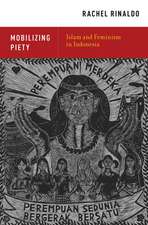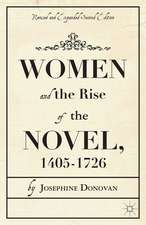She′s Mad Real – Popular Culture and West Indian Girls in Brooklyn
Autor Oneka Labennetten Limba Engleză Hardback – 24 iul 2011
| Toate formatele și edițiile | Preț | Express |
|---|---|---|
| Paperback (1) | 238.74 lei 6-8 săpt. | |
| MI – New York University – 24 iul 2011 | 238.74 lei 6-8 săpt. | |
| Hardback (1) | 526.76 lei 6-8 săpt. | |
| MI – New York University – 24 iul 2011 | 526.76 lei 6-8 săpt. |
Preț: 526.76 lei
Preț vechi: 684.11 lei
-23% Nou
Puncte Express: 790
Preț estimativ în valută:
100.81€ • 104.86$ • 83.22£
100.81€ • 104.86$ • 83.22£
Carte tipărită la comandă
Livrare economică 15-29 aprilie
Preluare comenzi: 021 569.72.76
Specificații
ISBN-13: 9780814752470
ISBN-10: 0814752470
Pagini: 254
Dimensiuni: 158 x 235 x 24 mm
Greutate: 0.52 kg
Editura: MI – New York University
ISBN-10: 0814752470
Pagini: 254
Dimensiuni: 158 x 235 x 24 mm
Greutate: 0.52 kg
Editura: MI – New York University
Notă biografică
Oneka LaBennett is Associate Professor of Africana Studies at Cornell University.
Descriere
Challenges the believe that West Indian American girls are but assert agency in defining race through strategic consumption of popular culture












